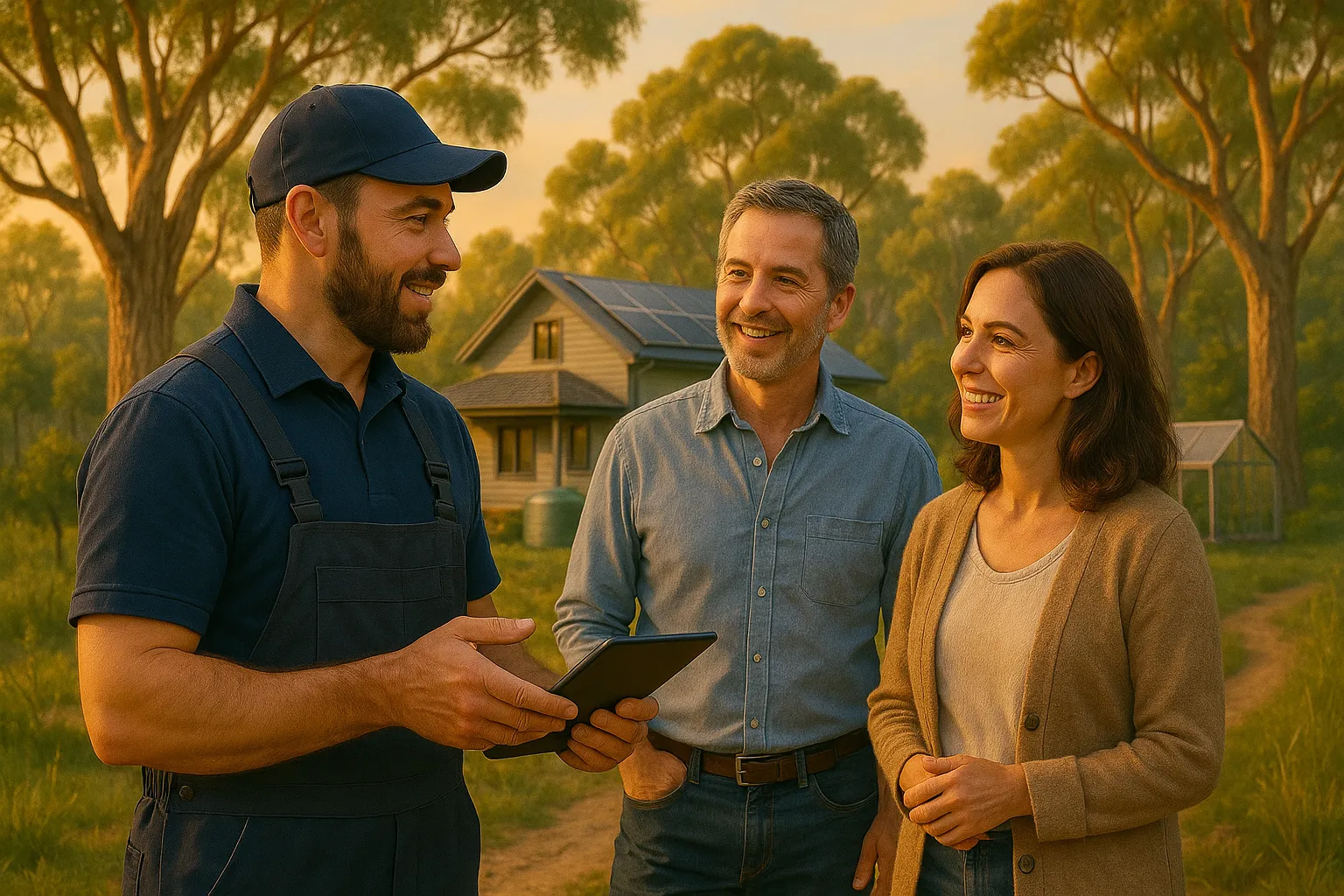Approx. 4 minute read
Why Hire a Resiliency Consultant When You Could Do It Yourself?
In an age where self-sufficiency is prized and DIY culture is thriving, it’s natural to think: Why hire someone to help me prepare when I can figure it out myself? After all, information is everywhere—books, podcasts, YouTube channels, online courses. If you’re motivated and resourceful, there’s no shortage of tools to help you build a resilient home, lifestyle, or property.
And that’s true. You can do it yourself.
But that doesn’t always mean you should—at least not without help.
Just like you can learn to service your own car, install your own off-grid solar, or design a permaculture garden, there are moments when bringing in someone with deep, hands-on experience isn’t a crutch—it’s a shortcut to clarity. A resiliency consultant is one such shortcut. For the right person, in the right phase of their journey, they can be the difference between slow progress that arrives too late to make a difference, and rapid momentum with immediate, tangible results.
Time: The One Resource You Can’t Make More Of
The first and most obvious benefit is time. Sorting out resilient water systems, off-grid energy, bushfire safety, or food security involves an overwhelming number of moving parts—technical, environmental, logistical, and sometimes even legal. The time investment to just understand what you’re looking at can stretch into weeks, months, or even years.
A resiliency consultant doesn’t just save you that time—they compress it. What might take you a year of research can be narrowed down to a few focused days or weeks. You still stay in control of your choices, but now you’re operating from an informed position—guided by someone who has already walked that path and seen what works.
Money: Mistakes Cost More Than Advice
The second benefit is cost, though it’s not always obvious at first. Most people assume DIY is cheaper. But when it comes to resilience, the real costs come from mistakes: Installing a rainwater system that doesn’t account for local roof runoff patterns. Choosing batteries that degrade too quickly. Overspending on tech that doesn’t integrate well with the rest of your setup. Underbuilding critical bushfire defenses. Or worse—failing to do anything at all, simply because the process feels too overwhelming.
A good consultant doesn’t sell you products—they prevent you from buying the wrong ones. They design around your lifestyle, your risks, and your region—not just theory. That alone can pay for itself several times over.
Clarity: The Quiet Value That Changes Everything
And then there are the less visible benefits, the kind you don’t notice until you’ve made the mistakes we all do. The sense of clarity that comes from having a tailored roadmap. The reduction in mental load. The confidence that your home or land makes sense—that it’s not just a patchwork of well-meaning ideas but a living, breathing system built for your unique goals.
It’s not about outsourcing your responsibility—it’s about refining your responsibility. You stay at the helm. You still learn, choose, and grow. But you’re no longer reinventing the wheel.
Not For Everyone—But Game-Changing For Some
Of course, not everyone needs a resiliency consultant. Some thrive on the process of working things out piece by piece. Some have the time and enjoy the learning curve. That’s a perfectly valid path—and a rewarding one.
But for others, especially those juggling family, work, or larger properties, the margin for error is slim, particularly in times of political, environmental and social uncertainty. In those cases, a consultant doesn’t take over. They walk beside you, helping you avoid costly detours, accelerate your progress, and make sure your efforts are working with your environment, not against it.
Final Thoughts
You don’t need someone to hold your hand. But you might benefit from someone to walk the path with you—someone who sees the blind spots before they become pitfalls, and who can help translate your values into a functional, resilient lifestyle. We’re not better than you, we’ve just walked this path and we know there are right, and wrong ways to do things.
In the end, resilience isn’t about prepping for worst-case scenarios. It’s about designing systems that give you more freedom, more time, and more peace of mind—no matter what comes next.
